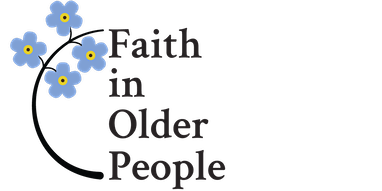It’s easy to feel that an interest in ethics or philosophy is only loosely connected to everyday life, but of course the theories they generate can be investigated and evidenced for their practical impact. The care of older people is a case in point. The nature and definitions of health, wellbeing, responsibility, reciprocity and many more theoretical concepts come into play, but if the point of considering these issues is not to improve life for carers and cared for, then what is it?
It is primarily with this purpose of improvement in mind that I have been exploring care environments – residential, community and domiciliary – through interviews, visits and accessing evaluation reports over the last six or so years. The result has been two books (1) and the development of a theory of ‘relational care’.
To start with the basic theory of relational care before moving on to matters of practice: being human nearly always means being interdependent. This is evident in so many of the world’s most pressing current issues, including the Covid-19 pandemic, the climate emergency and apparently localised conflicts. Yet over the last decades social care has been predicated on the benefits of independence and being ‘person-centred’ rather than interdependence. Independence can quickly deteriorate into loneliness and isolation. The person-centred approach, based on the primacy of the individual, is a great step forward from the primacy of the institution but may not adequately recognise that care should not and cannot be uni-directional. Seeing the older person as a collection of needs and demands, however frail they may be physically or cognitively, disempowers them further.
Rather than focussing on restoring ‘independence’ without looking at its implications, social care should be directed towards re-creating agency and autonomy, enabling contribution by ensuring mutuality in the care setting where possible, and recognising the importance of meaning and purpose in life.
Professor Marian Barnes, who proposes and has written extensively on the concept of ‘care ethics’ (2), notes that they prioritise ‘relationships and responsibilities’ rather than ‘rights and rules’. Doctor and philosopher Atul Gawande in his wonderful book Being Human warns that if we focus on ‘decrepitude’, ‘we blind ourselves to the opportunities that exist to change individual experience of ageing for the better’.
The experience of later life can be transformed and transformative, if it is lived in the context of meaning and purpose, which are very much about affirmation of oneself as being needed and accepted as part of society. Ageing can bring new opportunities and time to develop spiritually, and part of that process may well include retrospection; having others to listen to you; and listening to them in return. Those ‘others’ may be family, friends, care staff, volunteers, chaplains, but crucially there should be a mutuality of regard (or preferably love), for each to feel recognised, known and valued for who they are.
Translating these observations, made by professionals, academics, theologians and philosophers amongst others, into everyday practice is another matter. This is where meeting people, listening, visiting different providers and projects comes in. How do people describe their experiences and what matters to them? When they talk about feelings of security, love, family bonds and contentment; about fears, losses and confusion: what do the environments that engender these look like? My book Making Relational Care Work for Older People is subtitled Exploring Innovation and Practice in Everyday Life, and that is just what I set out to do. I looked for examples of best practice, and what seemed to make them work. To be honest, I was not very interested in finding poor practice, there is plenty of that (rightly) highlighted in the media.
We need models that can be followed and adapted, to avoid re-inventing wheels that are already working well. We need their inspiration. And we need to know how viable they are, in financial, operational and human terms. That is the basis for practical improvements and for developing arguments that might affect policy and funding.
The vital importance of relationships is now widely accepted as transformative to the lives of all involved in the care of older people, yet favouring the conditions for them to get established has a long way to go, in policy, planning and practice.
- Developing a Relational Model of Care for Older People (Woodward, J and Kartupelis, J, 2018, Jessica Kingsley Publishers: London) and
Making Relational Care Work for Older People (Kartupelis, J, 2021, Routledge: London and New York)
- See for example, Re-imagining Old Age: Wellbeing, Care and Participation (Barnes, M et al, 2018, Vernon Press: Wilmington)
Jenny Kartupelis
Author of Making Relational Care Work for Older People

